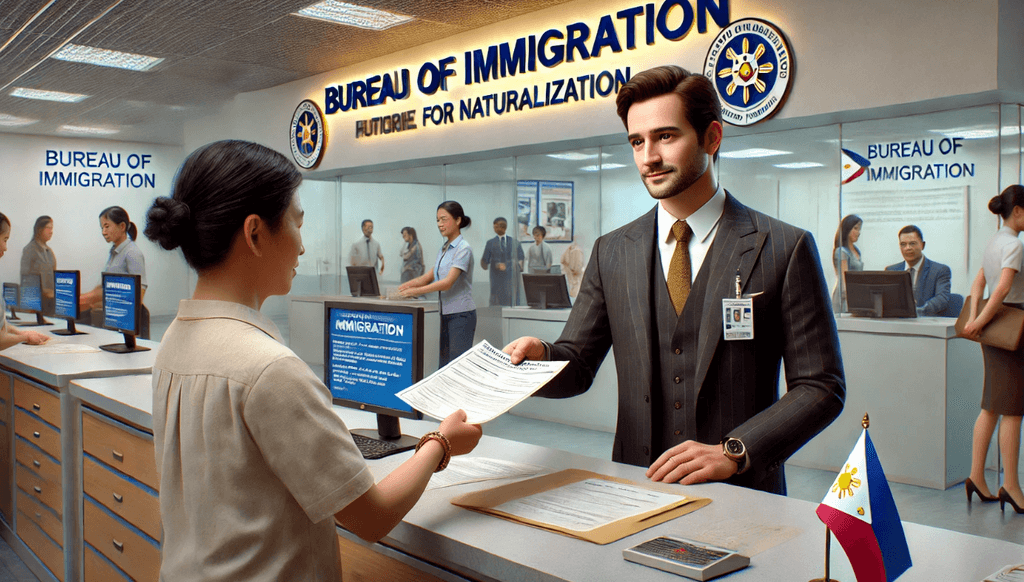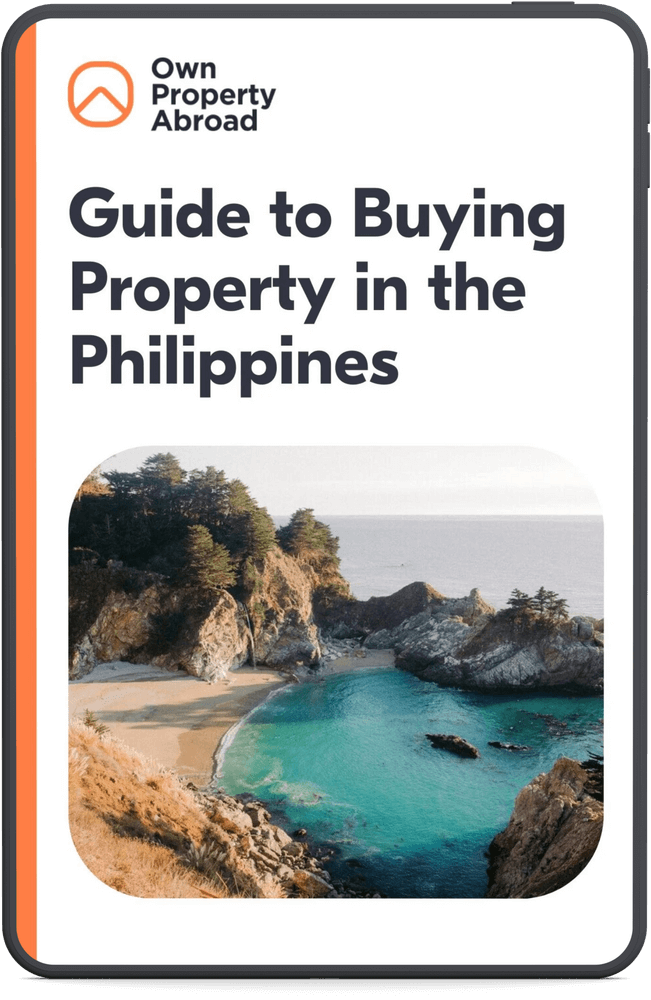What is the Special Investor’s Resident Visa (SIRV)?
The Special Investor’s Resident Visa (SIRV) is a non-immigrant visa in the Philippines. This visa differs from other visa types in the Philippines mainly in its purpose and requirements. Unlike tourist, employment, or business visas in the Philippines, the SIRV is designed for foreign nationals who plan to invest in the Philippine economy. It grants individuals of a particular age group the conditional right to reside in the country temporarily.
There are two types of Special Investor’s Resident Visa in the Philippines. Each Philippine SIRV differs based on its duration and conditions:
- Probationary SIRV: Offers a short-term solution. It is valid only for six months. This type of visa is best suited for investors who plan to be resident in the Philippines for a limited time, all the while maintaining their investment activity.
- Indefinite SIRV: Also known as a permanent resident visa, it provides an extended solution for longer-term residence. It offers the privilege of permanent residence in the Philippines. However, indefinite SIRV holders must ensure that their investments in the country are actively maintained.
Benefits of the investor visa in the Philippines
The Special Investor’s Resident Visa (SIRV) is not just a permit to live in the Philippines; it comes with many benefits designed to make your experience as an investor smooth, convenient, and enriched. If you’re considering obtaining an investor visa in the Philippines or the SIRV, understanding these advantages will help make your decision easier.
- Unlimited tenure: The SIRV in the Philippines offers the benefit of unlimited residency. This provides stability and permanent residence in the Philippines, ideal for long-term foreign investors.
- Easy comings and goings: The investor visa in the Philippines offers flexibility and convenience, allowing multiple entries without restrictions. Consequently, investors have the freedom to manage their businesses and investments on an international scale.
- Effortless movements: The SIRV in the Philippines eliminates typical immigration procedures. This includes exemptions from exit clearance, re-entry requirements from the Bureau of Immigration (BI), and no need for an Alien Certificate of Registration. Thus easing the process of international travel and reducing administrative tasks.

Eligibility criteria for an investor visa in the Philippines
The Special Investor’s Resident Visa (SIRV) is designed for investors who meet specific requirements. This visa’s requirements differ from those of other Philippine visas, so applicants should understand these rules before applying.
- Age and relationship status: Any person over 21 can apply for an investor visa in the Philippines. The eligibility also extends to spouses of applicants and unmarried children under 21. Hence, the visa accommodates the family unit.
- Clean record: Potential foreign applicants for the SIRV in the Philippines must have a spotless criminal and health record. Moreover, they must show no past institutionalization because of a mental disorder or disability. This ensures positive interaction with the local community.
- Financial eligibility: Financial capacity is the key to an investor visa in the Philippines. It requires applicants to invest at least $75,000 in selected sectors or enterprises, distinguishing itself from tourist visas.
- Investment steps: More than providing financial means, the SIRV in the Philippines demands diligence on fund investment. The investment should be deposited in a peso time deposit at the Development Bank of the Philippines (DBP) or the Land Bank of the Philippines (LBP) for 30-60 days. After the probationary SIRV is issued, the deposit must be transferred into a domestic investment within 180 days and reported to the Board of Investments. This ensures the investor’s contribution to the nation’s economy.
Acceptable investments for a SIRV in the Philippines
When considering an investor visa in the Philippines, it’s essential to understand what makes up an allowable form of investment for a SIRV. While planning how to invest in the Philippines, consider these acceptable investments:
Investment scope
An investor visa in the Philippines necessitates the purchase of shares of stocks in corporations. These corporations can be speculative, newly established, or already existing. Your investment within these corporations can affect your application for an investor visa, as only certain types of investments in the Philippines qualify for the SIRV.
Investment opportunities
Keep these specific forms of allowable investments in mind:
- Publicly listed companies: One way to ensure that your investment in the Philippines satisfies SIRV requirements is by purchasing stocks listed on the stock exchange with an annotation of a lien on Stock Certificates. This ensures a more structured and officially recognized form of investment.
- Investment priorities plan firms: The Philippine government frequently identifies specific industries as priorities for investment and expansion. These are listed under the Board of Investment’s Investment Priorities Plan (IPP). Investing in these businesses offers the dual benefit of meeting the SIRV requirements while tapping into the Philippine economy’s most promising and often fast-growing sectors.
- Manufacturing and service industries: These sectors remain the backbone of any economy, and the Philippines is no exception. Thus, investing in corporations dealing with manufacturing and services can be a sound strategy for SIRV applicants.
Excluded investments for the Philippine SIRV
However, certain investment restrictions apply to the investor visa in the Philippines. If you own shares in corporations engaged in wholesale trading, you are excluded from applying for an investment visa in the Philippines. This prohibition is in place to preserve local economic interests and specific domestic business sectors.

How to obtain an investor visa in the Philippines in 5 steps
Obtaining an investor visa in the Philippines involves a 5-step process that allows foreigners to establish their residency. Below are the steps foreigners should follow to apply for a SIRV visa in the Philippines.
Step 1: Check eligibility
First, as a foreign investor wanting to secure an investor visa in the Philippines, you must check the eligibility criteria through the SIRV requirements. A candidate should be at least 21 years old, without any criminal record, free from contagious diseases, and should not have previously been hospitalized for a mental disorder. The rule also permits bringing along your spouse and dependent children under 21 and unmarried under the same investment amount.
Step 2: Selecting your investment
The next step would be to decide on a sector for investment. The investor visa in the Philippines stipulates a minimum of $75,000 to be invested in a pre-approved industry, which could be anything from financial services, construction, and healthcare to tourism, transport, and others, but excludes wholesale trading and condominium-selling companies.
Step 3: Apply for the SIRV
Following the investment decision, the application for the investor visa in the Philippines can be forwarded either through the nearest embassy/consulate or directly from the one-stop SIRV Center in Manila. The required documents include your passport, birth certificate, filled application form, personal history statement, clearance from NICA and NBI, and a medical certificate indicating good health. Also, proof of the intended fund remittance from an accredited bank and an application processing fee of $300 must be submitted. Upon approval, an applicant is granted a probationary SIRV lasting six months.
Step 4: Convert probationary SIRV to indefinite SIRV
As the next step, you must transform the probationary SIRV into an indefinite one. This requires the investment of the initially stipulated amount within six months. Conduct adequate research and seek proper financial advice before this step. Once completed, your residence won’t have an expiration date as long as your investment meets the minimum threshold.
Step 5: Citizenship in the Philippines
Lastly, the main drawback to settling in the Philippines as a second home is that citizenship is complex. After ten years of living in the country, naturalization is only granted to those who can demonstrate knowledge of Filipino history and speak Tagalog fluently. However, few foreigners request citizenship after ten years because it’s difficult to achieve.
Investor visa (SIRV) requirements
Here are the primary investor visa requirements in the Philippines for the SIRV:
- Application form: Fully accomplished and notarized, with recent photographs.
- National Intelligence Coordinating Agency (NICA) clearance: Either clearance from the central government agency of the applicant’s residence or the Interpol division of the National Bureau of Investigation (NBI). It is important to note that the expiration dates of these clearances should not be earlier than six months from the application filing.
- Medical certification: Issued by the Department of Health (DOH), any government hospital or health facility, licensed hospital, laboratory, or medical center in the applicant’s home country. Again, the expiry of these clearances should not expire six months before application filing.
- Certification under oath: From authorized officers of any accredited depository bank in the Philippines. It acknowledges the amount of foreign exchange remitted by the application and its conversion to pesos.
- Certificate of peso time deposit: A certified true copy with a maturity period of no less than 30 days. The certificate’s original copy is safely stored at the depository bank.
- Birth certificate: Or family/household registry authenticated by the Philippine consulate or embassy in the applicant’s residence.
- Additional documents for dependents: The application will require a marriage contract authenticated by the Philippine Consulate/Embassy for spouses and dependent children.
- Original passport: The primary identification document.
- Processing fee: A non-refundable fee of $300.
Can property buyers obtain an investor visa in the Philippines?
It’s worth noting that investing in real estate has not been clearly defined as an eligible sector to obtain an investor visa in the Philippines. The SIRV is primarily targeted toward encouraging investments in companies or purchasing stocks, meaning property buyers cannot get an investor visa in the Philippines.
Expert support to obtain your SIRV investor visa in the Philippines
Obtaining the SIRV investor visa in the Philippines involves several steps, from gathering the required documentation to navigating legal requirements and submitting your application. Our experienced team is here to guide you through the entire process, ensuring that every detail is handled with care and precision. Whether you’re new to investing in the Philippines or need assistance with your visa application, we provide personalized support tailored to your needs. You can also email us at [email protected] for more detailed inquiries and specialized guidance. Contact us today to secure your Philippine investor visa with confidence and ease!

Frequently Asked Questions (FAQs)
How do I get citizenship in the Philippines?
To obtain citizenship in the Philippines, one must typically have resided in the country for at least ten years, be proficient in the Filipino language, and demonstrate good moral character. Age restrictions apply, where applicants need to be over 21 years old on the day of the citizenship petition. The routes toward citizenship include a judicial process for foreigners married to Filipinos and naturalization petitions approved by the Office of the Solicitor General.
How do I get a retirement visa in the Philippines?
You must meet certain conditions to get a retirement visa (Special Resident Retiree’s Visa or SRRV) in the Philippines. You qualify if you’re at least 50 years old and have a pension. Alternatively, you’re eligible if you’re 35 or older and deposit at least $50,000. You cannot have a criminal record and must be able to support yourself and any joining family members financially. You may also need to consider the costs of the SRRV visa application, its renewal, and the potential need for cancellation.
Can foreigners buy property in the Philippines with SIRV?
Foreigners can own properties in the Philippines under certain conditions. They can own condominium units or flats, provided the block remains at least 60% locally owned. Regarding land ownership, however, restrictions are in place for foreign individuals. Special Investor’s Resident Visa (SIRV) holders engage in qualifying investments, including stock shares in existing, new, or proposed corporations. Still, it does not mention property as a type of investment. Therefore, a foreigner with a SIRV can own property such as a condominium but not the land on which these structures are built.
Can foreigners obtain an investment visa in the Philippines by buying property?
Real estate property investment does not qualify for the Philippines Special Investor’s Resident Visa (SIRV). The Philippines authorities only accept investments or shares of stocks in existing, new, or proposed corporations under the SIRV. Even though foreigners can own condominium units or flats within limited conditions, these are not considered to be eligible investment forms for the SIRV.






